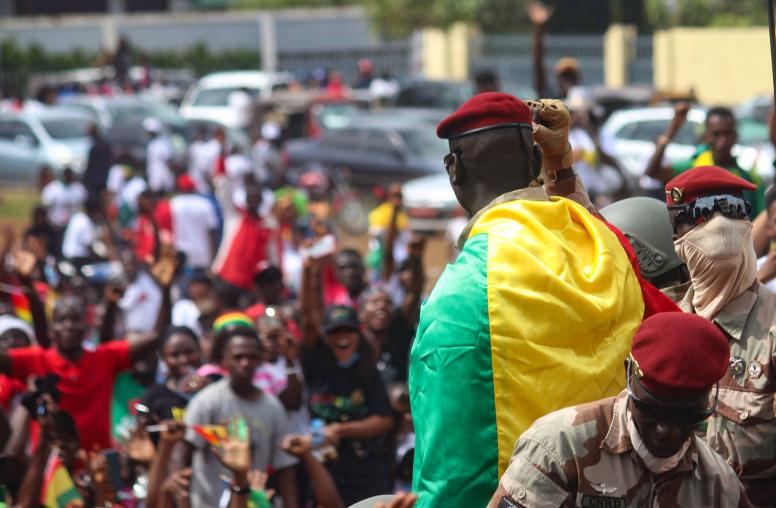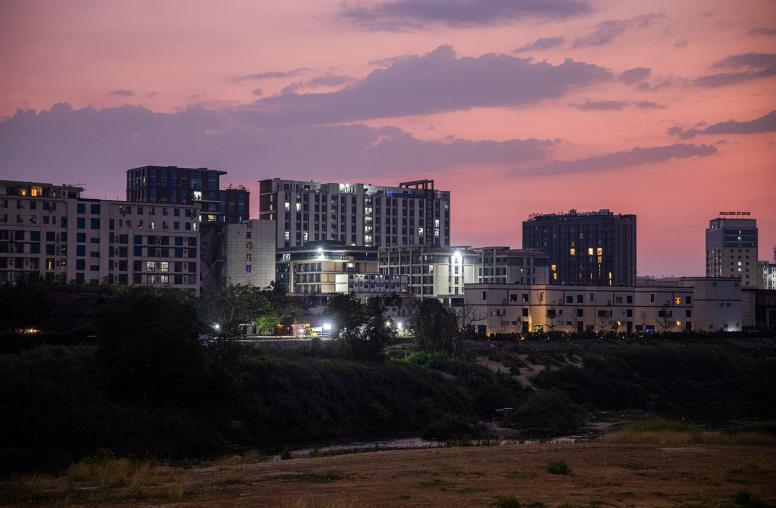Back to the Basics: Fixing the Americas’ Polarized Media Landscape
A renewed focus on traditional, fact-based investigative reporting can help address the weaknesses in democracy around the hemisphere.
The recent Summit of the Americas in Los Angeles underscored that the Western Hemisphere faces several crises. Climate change threatens tens of millions of Americans throughout the hemisphere. Democracy, once the unquestioned standard of regional governance as recently as 1994 when it was celebrated at the inaugural Miami Summit of the Americas, is also in crisis. In fact, it became the unfortunate story of the summit: who was invited and who wasn’t. Regardless of which side of the democratic inclusion summit debate one adopts, democratic backsliding and the rise in autocratic governance like in Mexico, El Salvador and Brazil — to say nothing of the extinction of democracy in Cuba, Nicaragua and Venezuela — represents a worrisome reality that goes beyond the traditional left- versus right-wing paradigm.

There is a third crisis that is directly related to the tattered state of hemispheric democracy: the unhealthy media ecosystem. How citizens are informed to be stewards of their own political and economic destinies by means of the ballot box is an essential component of a thriving democratic society. Sadly, traditional media (print, broadcast and radio) and the critical functions of newer, digital and streaming media have become excessively polarized and partisan. And this has a direct impact on the stability of political systems.
Partisan Influence in Latin America’s Media
A quick look at the nature of the problem reveals five fundamental sources of partisan influence that have crept into most media that is consumed in the Americas.
1. Newsroom Infiltration
Governments, opposition parties, foreign governments, corporate interests and organized crime have all increasingly infiltrated the newsrooms and editorial conference rooms of traditional family-based media conglomerates to promote their narrow, interest-based agendas. To be accurate, this phenomenon is hardly new, but it is becoming more pronounced.
2. Media Credibility
Historically there were newspapers, radio announcers and news figures of record who were generally thought to be beyond such influence. Perhaps the greatest example of this journalistic rectitude was the American television anchorman Walter Cronkite, universally referred to as “the most trusted man in America.” Other anchors, like Roger Mudd, John Chancellor and Peter Jennings had similar reputations for telling it like it was, and clearly separating fact-based reporting from opinion pieces.
In today’s online and streaming worlds, the most powerful content providers — influencers — have never been formally trained in journalistic ethics or the practice of quality journalism. The very concept of presenting content absent an opinion or slant is almost counterintuitive. The whole point of an influencer is to tell followers what they are thinking or feeling, or how they are reacting to something. There is no fact checking. Followers, in turn, react with an emoji, expressing their opinions back at these new technological story tellers. Spin, bias and subjectivity are inherent to the medium.
3. The Power of Influencers
Often frivolous and sophomoric, it is a mistake to underestimate the reach and power of today's often adolescent Instagramers, Youtubers, and TikTok-ers. A 17-year-old in Mexico City with a streaming account that has a half million followers and usually focuses on fashion tips could conceivably throw a local election with one viral 20-second video.
In 2017, disgraced former Panamanian president Ricardo Martinelli produced a series of online videos with a popular rapper touting his fame as “The Crazy One,” with the tagline: “Sure, he [Martinelli] stole (public funds), but he got stuff done!” During the 2020 U.S. presidential race, K-pop fans on TikTok conducted a loosely coordinated, online hoax to make it appear that a rally for President Trump would be attended by multitudes when, in fact, actual participants were only a few thousand, thus making the event appear to be a failure. The sheer motivational power of these digital democracy influencers must be recognized and respected.
4. Media Consolidation
Adding to this media crisis of credibility, multiple studies have revealed that the family-owned, newspaper, radio and television station enterprise model is flailing, financially and often editorially. With few exceptions, media industries in most countries of the Western Hemisphere are trending toward greater consolidation as revenues fall, with a commensurate loss of regional diversity, granularity and flavor. Also undeniable is that fewer citizens are turning to these formerly trusted outlets to get their news and information, preferring Facebook, and other algorithm-based social media platforms to inform themselves about what is going on in their community or country.
5. Purposeful Disinformation
A related challenge in this landscape is that Latin American and the Caribbean news and information media are awash in purposeful disinformation. China’s Xinhua en Español and CGTN Español, and Russia’s RT Actualidad and Sputnik Mundo news services have been extremely aggressive in placing their state-sponsored propaganda in traditional media outlets over the past decade.
Their multiplatform reach is in the millions and they have developed sophisticated blends of infotainment, sports and culture reporting that accompany their state-sponsored propaganda messaging on everything from COVID-19 vaccine programs to patently false reporting on Chinese or Russian assistance programs in the region.
In this brave new digital world, there is a yawning and urgent need for truly independent and responsible formal media and informal influencers. Citizens in any democracy must have access to fact-based, contextualized information to make up their own minds regarding issues of the day. When asked, few hemispheric citizens would counter the argument that media is polarized; but they will consistently resort to their own confirmation bias to point out the transgressors.
What Can Be Done?
In the face of relentless technological innovation and development that will undeniably continue to change the way societies consume information, one answer to the dilemma of media polarization and distortion is to go back to the basics.
A renewed focus on traditional, fact-based investigative reporting, with a premium on journalistic ethical practices, such as fact-checking and redundant sourcing, can contribute to an improvement in the media diet consumed by citizens. Supporting story tellers and journalists who perform their craft with integrity must become a priority. The demand for this type of reportorial coverage does exist, but it must also be cultivated by adaptation of the story tellers. Journalists today must use all existing and emerging media to present facts in context and inform audiences, as opposed to spinning audiences to adopt a particular view of what is happening in their lives. And despite old-school preferences for print journalism, few people read the exquisitely detailed 5,000-word, long-form investigation anymore.
Illustrative models of what is needed today throughout the Americas are the U.S. public interest media National Public Radio (NPR) and the Public Broadcasting System (PBS). What the Western Hemisphere needs, in short, is a Paraguayan PBS, a Guatemalan NPR.
The newly launched Center for Media Integrity of the Americas, an independent entity affiliated with the Organization of American States (OAS) will attempt to accomplish this task of promoting public interest media throughout Latin America and the Caribbean, primarily by supporting and nurturing the human capital who produce high quality, investigative journalism.
Through recurring journalism seminars and workshops, intensive cross national networking and hands on mentoring by some of the hemisphere’s most renowned journalists, the Center for Media Integrity will work with its partners at the Philip Merrill College of Journalism at the University of Maryland, the Gabo Foundation (also known as the Gabriel Garcia Marquez Foundation) and the Washington Post to create this nurturing and reinforcing environment in which hand-selected journalists will grow as professional story tellers who keep integrity and objectivity at the center of their work.
Recognizing the financial obstacles to producing high-quality journalism, and the enormous countervailing Russian and Chinese money behind state-sponsored propaganda, the Center will also financially incentivize this work through competition for awards that will afford sabbaticals or extended periods of financial independence for freelance journalists interested in producing in-depth investigative reports.
The Center was launched as a project of the OAS General Secretariat, but is being transitioned to a not-for-profit, independent organization, supported by voluntary donations from philanthropic organizations concerned about the state of media and democracy in the hemisphere. It will not take OAS member state donations and it is independent of OAS budgetary processes. The goals and values of the Center for Media Integrity are, however, intrinsically connected to core mandates of the OAS, such as supporting and defending democracy and human rights in the Americas, as reflected in the OAS Charter and the OAS Inter-American Democratic Charter.
Admittedly, this is a small step. However, it is a necessary one that has the potential to ignite the imaginations of citizens who desire high-quality journalism, outstanding storytelling, and, at its core, the truth about the realities in which they live.
When citizens have a collective — if even tacit — agreement about truth, (i.e., what is actually happening in a society and why), the preservation of social peace and stability is rendered a more achievable task. Just as democracies tend to resolve conflicts by peaceful means rather than conflict, a diverse polity that debates generally accepted facts and realities will tend to resolve its differences via dialogue or the ballot box, as opposed to violent protest or sectoral clashes. This is why a free press is an intrinsically core element to any peaceful, democratic society. And it is why the promotion of public interest media in the Americas is such an important, urgent and necessary task.
John Feeley is the executive director of the Center for Media Integrity and a retired U.S. ambassador.
Portions of this article first appeared in Univision’s digital portal.



